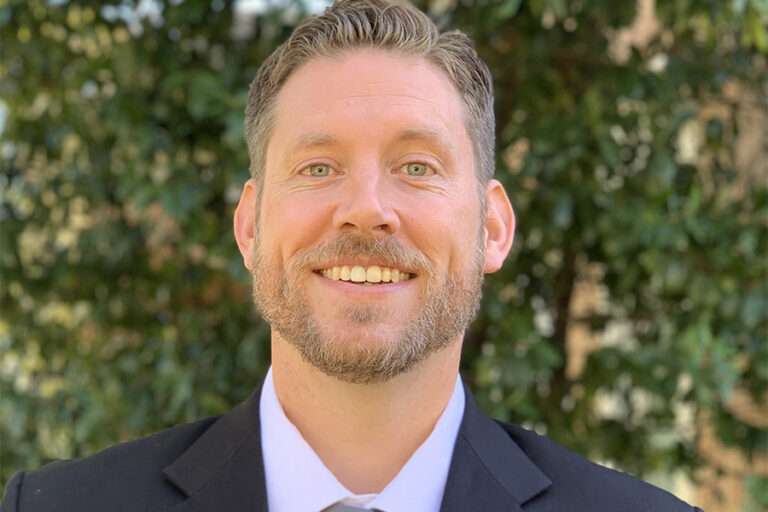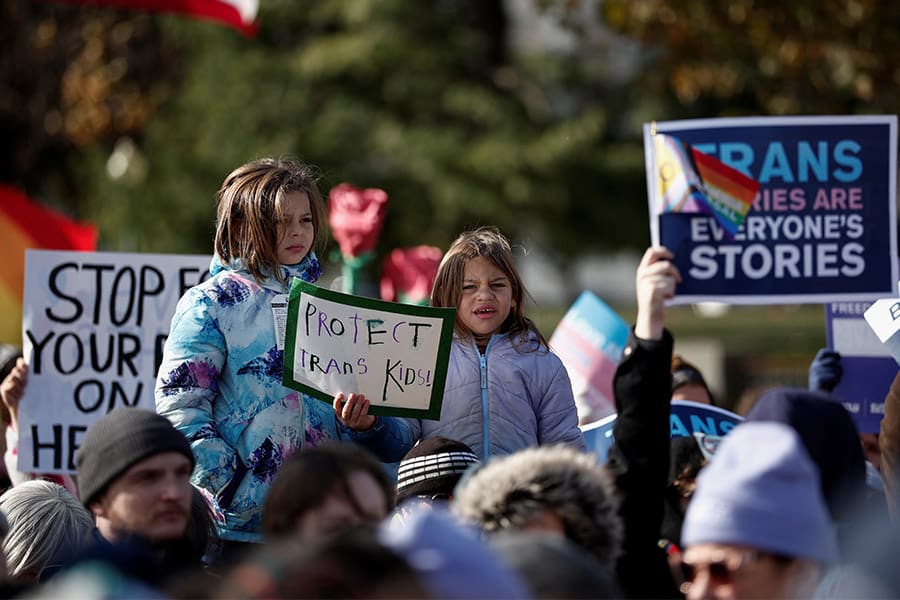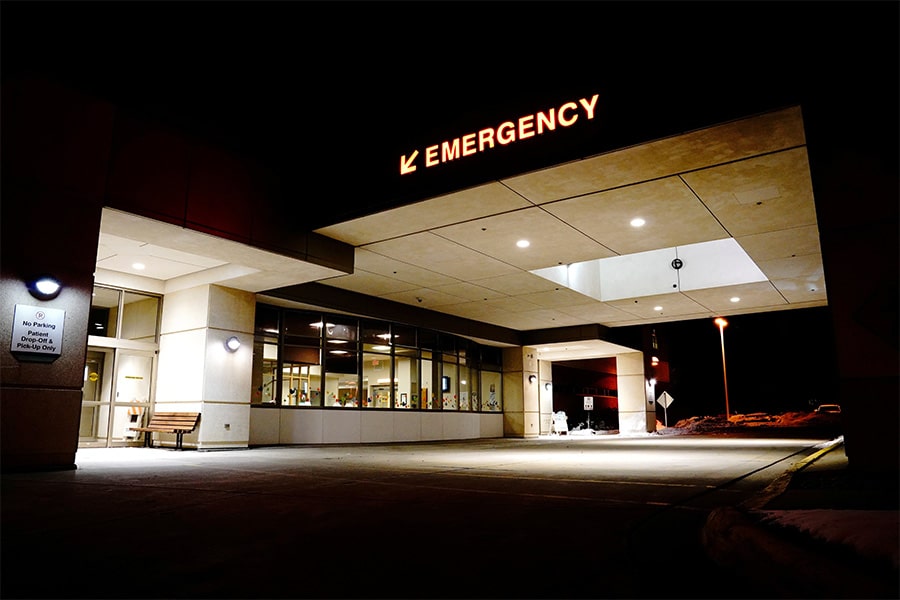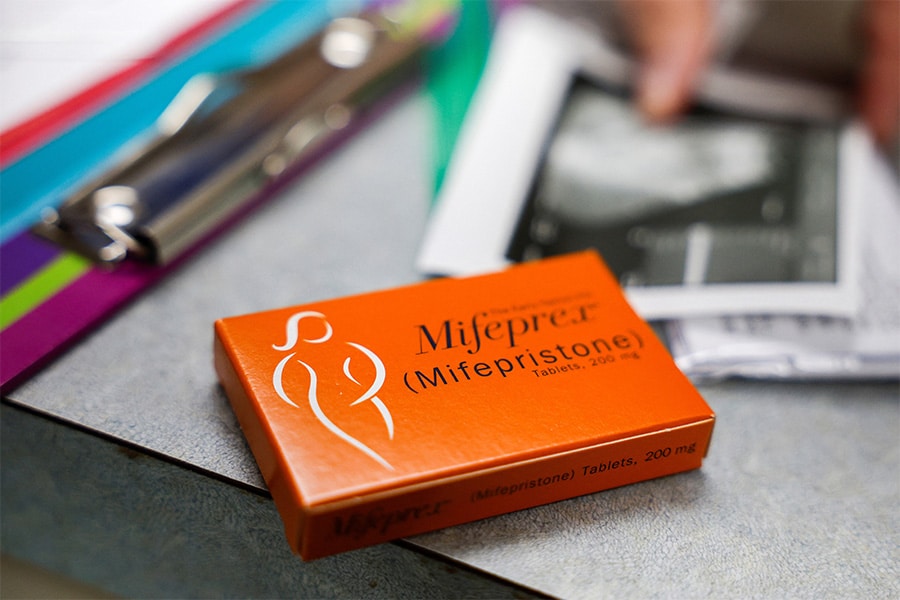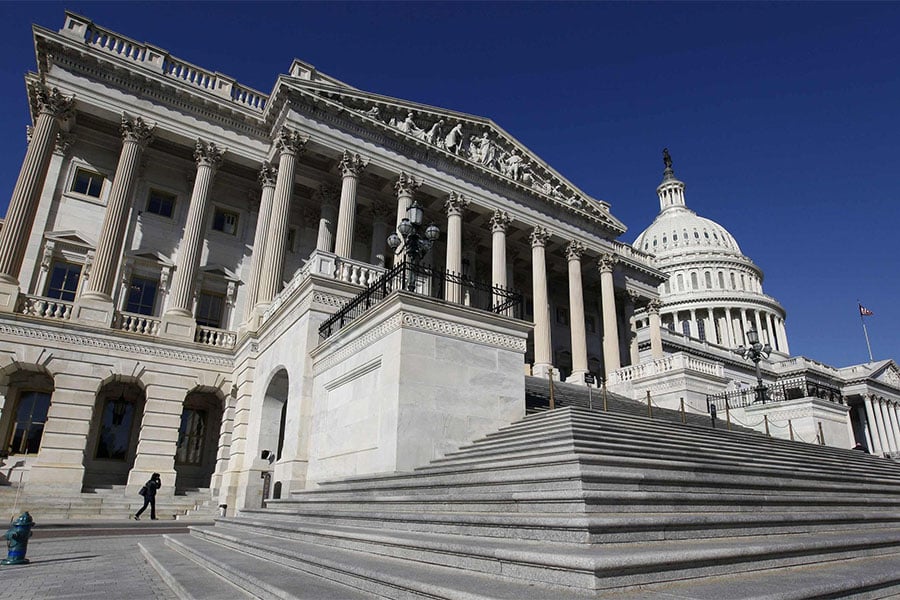When Chris Bartlett told a parish group his wife had miscarried, he recalls the women gathering around to console her and share their own stories of miscarriage and loss.
The men patted him on the back and helped him stack chairs.
“That was basically it,” he said.
Bartlett, 44, who leads a youth- and family-focused Catholic ministry in Texas called Ablaze, has six living children and five who died in miscarriage. After a miscarriage, husbands not only experience grief differently, he said, they are also often treated differently than their wives, even by well-meaning people. That can mean that men oftentimes grieve alone, in silence and on a different timeline than their wives.
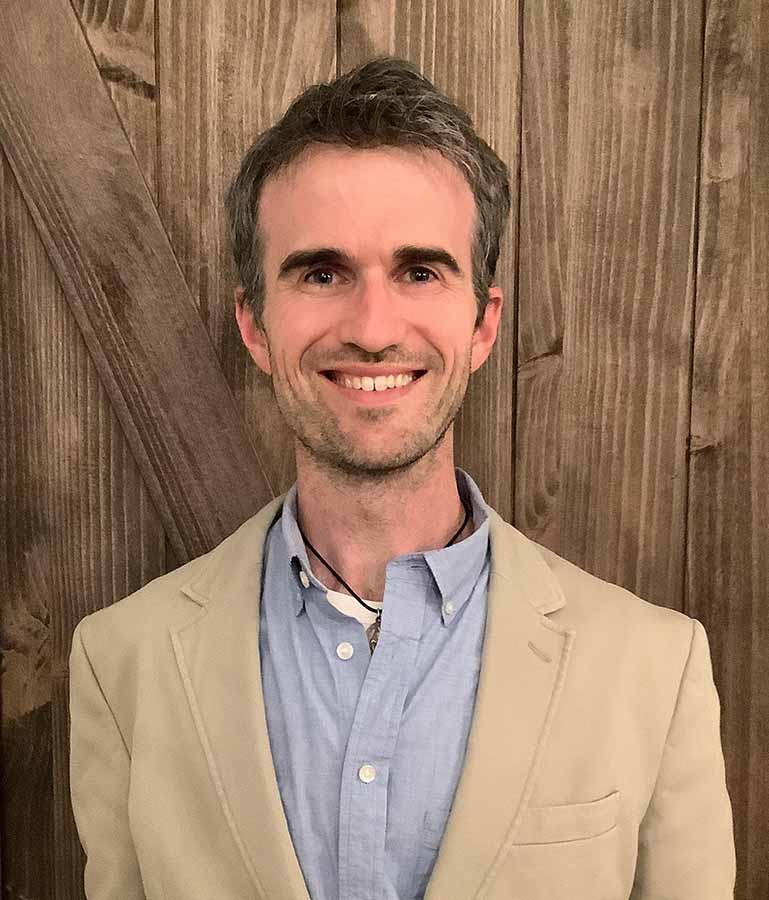
Moreover, men rarely talk about miscarriage with each other, he said, and their pastors or other faith leaders are unlikely to ask them how they’re doing — if they’re even aware of what many describe as a “hidden” loss.
While the past decade has seen a growth in miscarriage ministries, especially online, most are geared toward women. However, how miscarriage affects fathers and how that affects their relationships is an often overlooked aspect of this ministry’s developing landscape, several experts told OSV News.
According to the National Library of Medicine, as many as one in four pregnancies end in miscarriage — defined as the spontaneous loss of a baby before the 20th week of pregnancy. Most miscarriages occur during the first seven weeks. Babies lost in the 20th week or later are considered stillbirths. In the U.S., about 1 in 175 births are stillbirths, meaning about 21,000 babies are stillborn annually, according to the Centers for Disease Control and Prevention.
This reality is underscored each October with Pregnancy and Infant Loss Awareness Month. Oct. 15 is annually observed as Pregnancy and Infant Loss Remembrance Day.
While miscarriage’s emotional impact on expectant fathers has not been researched as thoroughly as its effect on mothers, studies suggest that fathers are more likely to experience feelings of despair and difficulty in coping than their female counterparts; that around half of men reported that the miscarriage affected their work, concentration and sleep; and around half did not share the full extent of their feelings with their partners out of fear of causing her further distress.
Red Bird Ministries is one Catholic apostolate created to help couples grieving child loss, including from miscarriage. Its founders, Ryan and Kelly Breaux, lost twins — a boy who died two weeks after birth in 2005, and a daughter who died three years later.
Red Bird Ministries’ app includes a group specifically for dads. Men are likely to respond to miscarriage and child loss “exactly how God designed,” Kelly Breaux said. “They want to provide and protect. … Our dads are just trying to make sure the family unit doesn’t fall apart.”
When they do recognize their grief, oftentimes “men suppress their emotions,” Breaux said. “They don’t talk about it. And they’re also taught as little kids, ‘Put some dirt on it,’ like, ‘Don’t be a sissy. Don’t cry, get up.’ … What we always fail to remember is that our Lord and Savior Jesus was the most sensitive man, but he was a lion.”
Effective father-focused miscarriage ministry should be led by other men, Breaux said, and because of differences in grieving, men may not realize they need it nor seek it out. Red Bird Ministries has had success reaching fathers through its couples-based approach, where a husband may attend an event with his wife, but then connect with other men once there. The organization also hosts an overnight, weekend retreat in Louisiana for grieving fathers.
Red Bird Ministries’ work is multifaceted, with resources for parishes and church leaders as well as for grieving couples and families. The need for bereavement ministry, particularly for parents, feels tremendous, Breaux said. “It’s like we’re carving the grief Mount Rushmore. There’s so much work to be done on this front.”
Breaux thinks parishes can do more to recognize and accompany parents grieving miscarriage, even in simple ways, such as celebrating an annual remembrance Mass followed by a reception where couples can see others with similar losses and recognize they’re not alone.
“I hear this all the time from the faithful — ‘I was only six weeks, I was only 10 weeks.’ There’s no ‘only’ when you’re pregnant,” she said. “If we believe as the church that a child has inherent dignity and an eternal soul and was indeed a baby, then we have to practice what we preach.”
Patrick O’Hearn agrees. A writer and father in North Carolina, O’Hearn and his wife have two living children, born in 2015 and 2022, and two others lost to miscarriage in 2017 and 2020. Both were lost around six or seven weeks gestation, but their loss early in the pregnancy did not diminish their parents’ grief.
“I see four swings often (while at the playground) pushing my two children, and it just hits me — it’s like my other two children should be here. And so it never goes away,” he said.
O’Hearn’s experience led him to collaborate with Catholic writer Cassie Everts on “Nursery of Heaven: Marriage, Stillbirth, and Infant Loss in the Lives of the Saints and Today’s Parents,” published in 2019. That led to more conversations about men, miscarriage and child loss, and ultimately another book partnership, this time with the Breauxes and fellow father Bryan Feger to co-write a book focusing specifically on fathers’ grief. “The Grief of Dads” was published by Ave Maria Press in September 2023.
“Acknowledging men and showing them they’re not alone … was probably the main reason that we wanted this book to come out,” O’Hearn said. “Men tend to not show their emotions because we want to be strong for our wives, and then so our wives think, ‘Hey, you’re not suffering with me.’ Really we are, but we just don’t want to burden you even more.”
Parish-based ministries are a key way the church can better acknowledge and comfort families grieving miscarriage, O’Hearn said, and it’s important for pastors to learn how to minister in this situation, which likely affects more of his parishioners than he realizes. O’Hearn speculates there are many Catholic men in need of healing who have never fully processed their wife’s miscarriage.
As O’Hearn grieved, he recalled, one trusted priest told him it was time to move on, which he found unhelpful. Another priest offered more comfort, “just helping me surrender it to God,” he said.
Bartlett, the Texas ministry leader, recalled feeling “stuck” in the grieving process after a miscarriage. He was angry and felt distant from God, and for a while, he didn’t want to speak to God directly, praying only for Mary’s intercession. Eventually, he worked through his grief and anger, restoring his trust in God. He shared his story last year on “The Catholic Dad Show,” a podcast he co-hosts with another Ablaze leader.
Bartlett said men’s openness about their grief and healing can help others, even in unexpected places. He recalled being at a punk rock concert, and mentioning to a guy next to him in a mosh pit that he had six kids. It led to a conversation about large families, and the guy said his grandmother had 21 kids, but five were miscarriages.
“If you count miscarriages, then we’ve had 11,” Bartlett told the guy.
The guy turned and looked at Bartlett and said, “I think God put me in this mosh pit with you for a reason. My wife and I just had a miscarriage a month ago.”
Bartlett and the guy shared their stories and found many surprising similarities, including the name they each had chosen for their babies, both lost at 16 weeks: Michael.
“It was unreal, because we hugged. Immediately, there was a brotherhood bond that was instantly forged,” he said.
Bartlett recalled the first three months after a miscarriage to be the most difficult, but “time and God’s love do work wonders,” he said.
He added, “To make it one the other side of it, and to talk to someone else. … It’s shared suffering.”
Read More Health Care
Copyright © 2024 OSV News

